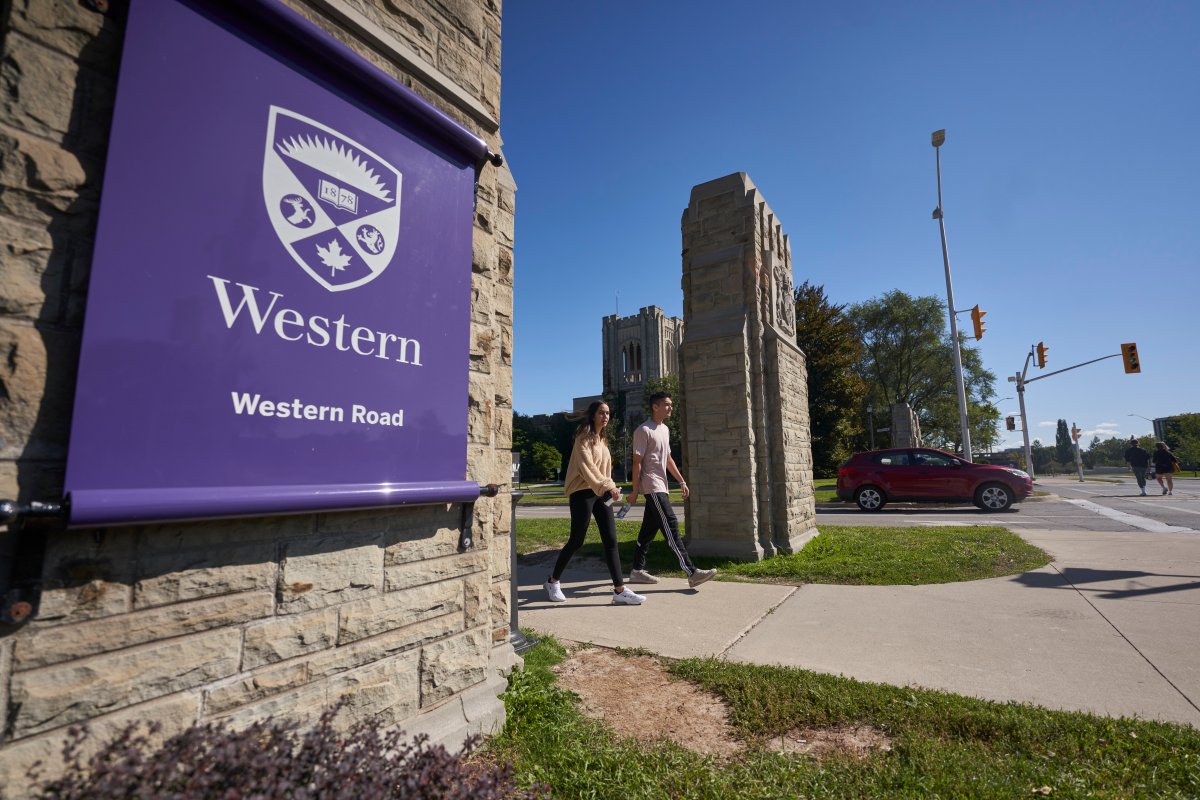Western University says it has identified a long-term solution to concerns raised over a remote proctoring software used by the school, but the solution may not arrive soon enough for some students.

After the COVID-19 pandemic shifted the majority of courses online, Western began using Proctortrack, a software aimed at preventing academic offences, such as cheating, during exams.
The software was offered by eCampusOntario, a provincially-funded non-profit organization that had recommended Proctortrack to all colleges and universities in the province ahead of the 2020/2021 academic year.
Prior to the 2020/2021 academic year, Western had no centralized remote proctoring software, with a number of professors finding alternative forms of assessment to make up for in-person exams in April 2020 soon after the pandemic was declared.
Proctortrack is a software that must be installed on a user’s computer. On Western’s page dedicated to explaining the software, it states that “once it is running, Proctortrack accesses the computer’s connected device list, desktop screen, web cameras, and microphone.”
The software is also provided access to the computer’s local file system “in order to check for any prohibited applications, virtual webcams, external displays, multiple keyboards, virtual machines and any test policy violations.”
Western says students are also made aware of when Proctortrack is running through the use of a blue frame that will appear on the computer’s screen.
“When the blue frame is shown on the screen, Proctortrack has access to desktop screenshots, web camera, process logs and keystrokes (used for ensuring the integrity of exams),” the website stated.
“Proctortrack does not access personal files or any other processes not required for the purposes of the exam.”
Students must also provide additional information in order to verify their identity, including their “name, student number, email address, phone number (for tech support purposes), photograph of student’s Western ONECard, photograph/face scan of student, and audio and video recordings of student taking assessments.”
Western’s website also states that the contractual relationship between eCampusOntario and Proctortrack’s parent company, Verificient Technologies, “includes provisions to protect student data.”
Under the section of the webpage that offers suggestions for how students can protect their data and privacy when using Proctortrack, Western states the “best practice with any software is to only keep it installed when it is actively being used” and that students “may install it before their assessment and then uninstall it once the assessment is complete.”
Once Proctortrack was implemented, it was quick to draw concern. A petition launched in September 2020 called for Western to ditch the software and has since garnered more than 10,000 signatures as of Sunday.
The petition referred to Proctortrack as “a blatant disregard for students’ privacy and the security of their information” and deemed the software “invasive and a breach of ethics.”
Soon after the petition launched, Proctortrack fell victim to a security breach, prompting Verificient Technologies to suspend the software’s services from Oct. 14 to Oct. 22 of 2020.
Western has stated that the parent company confirmed that no student data was accessed, altered or compromised in relation to the Proctortrack breach.
Despite the petition and security breach, Proctortrack remains in use and is on track to provide remote proctoring for a number of finals exams at Western next month.
Policy Pitch Association (PPA) is a student-led advocacy group that’s working to continue the dialogue surrounding Proctortrack and wants to see Western change course before final exams.
“The hope is for finals that we won’t have to be put in a position where we have to use the software,” said co-president Hiba Zinbarakji.
“Of course, if they give us an option that would be great, but they don’t.”
Western’s website dedicated to explaining Proctortrack states, “students who find they cannot proceed with the use of Proctortrack are advised to contact the Academic Counselling office of their Faculty to request a late withdrawal from these courses.”
In January, PPA held a debate night that focused on cybersecurity, and in particular Proctortrack. Zinbarakji says the event also heard of lingering concerns on the software’s use at Western.
“One of the most prominent issues discussed is that it added a lot of stress while they were writing these exams,” Zinbarakji told Global News.
Students noted that while they had the comfort of writing exams from home, they were now concerned with being flagged by Proctortrack for innocent actions, such as wandering eyes, background noise from roommates or wanting to get up to use the washroom.
“There’s just those aspects that you’re allowed to do in in-person exams that you’re not given the opportunity to do in this Proctortrack exam format,” Zinbarakji said.
“You’re kind of focused on your physical movement the entire time, which takes focus away from your actual exam.”
PPA co-president Jack Burke says their debate night also heard from students at other universities who expressed similar concerns with their school’s use of the software.
“This is not a problem solely at Western, but we do hope to better the situation for Western students and hopefully this can carry on into these other schools as well,” Burke added.
Lauren Reid, president of consulting firm The Privacy Pro, was invited to take part in January’s debate night and says she “left that debate so angry” after hearing the concerns voiced by students.
“Their voices were shaking when they were explaining that there were certain classes that they wanted to take, but they couldn’t deal with the anxiety of having remote proctoring and so they couldn’t take that class,” Reid told Global News.
“How big of a problem is cheating? I fully appreciate the importance of academic integrity, but is it worth the trade off to their mental health and the encroachment on their right to privacy? I don’t know that it is.”
Western’s vice-provost of academic programs John Doerksen says the school has been working to address the concerns surrounding Proctortrack and that a long-term solution is on the way.
Some of the work involves short-term solutions such as ramping up tech support and chat functions within Proctortrack, which Doerksen describes as leading to a “far smoother setup” compared to when the software was first implemented.
“We’re able to respond to chat queries, almost all of them, within a minute … and we’re able to solve most of the technological hurdles quite effectively,” Doerksen said.
In other settings, Proctortrack may scan a number of biometrics, such as knuckles, in order to verify a user’s identity, but Doerksen says these functions have been “effectively turned off” in Western’s version of the software.
Doerksen says Western also set up a steering group compromised of students, faculty and staff aimed at reviewing alternatives to Proctortrack.
“That group has identified another solution or a solution that we’re working on,” Doerksen said.
“In the longer-term, we’re going to have a remote proctoring that will address some of the key priorities that have been raised.”
Doerksen wouldn’t say if the upcoming solution will see Western abandon Proctortrack, but says he hopes to have it implemented in time for students attending summer school.
“Or at the very least, that we could do a robust pilot project … so that by the time the fall term rolls around, to the extent that we still need to be turning to remote proctoring solutions, that we would have a really well-implemented, well-supported system for our students,” Doerksen said.
However, PPA wants change to arrive next month, just in time for final exams.
While things could change between now and April, Doerksen says it’s unlikely that Western will switch to another software before then.
“It wouldn’t be very prudent of us to just sort of drop a new system out campus-wide and not be able to support it effectively for our students,” Doerksen.
Doerksen says the school has seen a decrease in proctored exams, with professors looking for alternative strategies, but Proctortrack will still be required for a significant number of students come April.
“We don’t have an institutionally-standardized way of responding,” Doerksen said about students who want to opt-out of using the software during final exams.
“I would encourage those students to talk to their faculties, to their academic counsellors, to the associate deans in those faculties, to see if, in some cases, there might be some kind of an alternative option.”









Comments